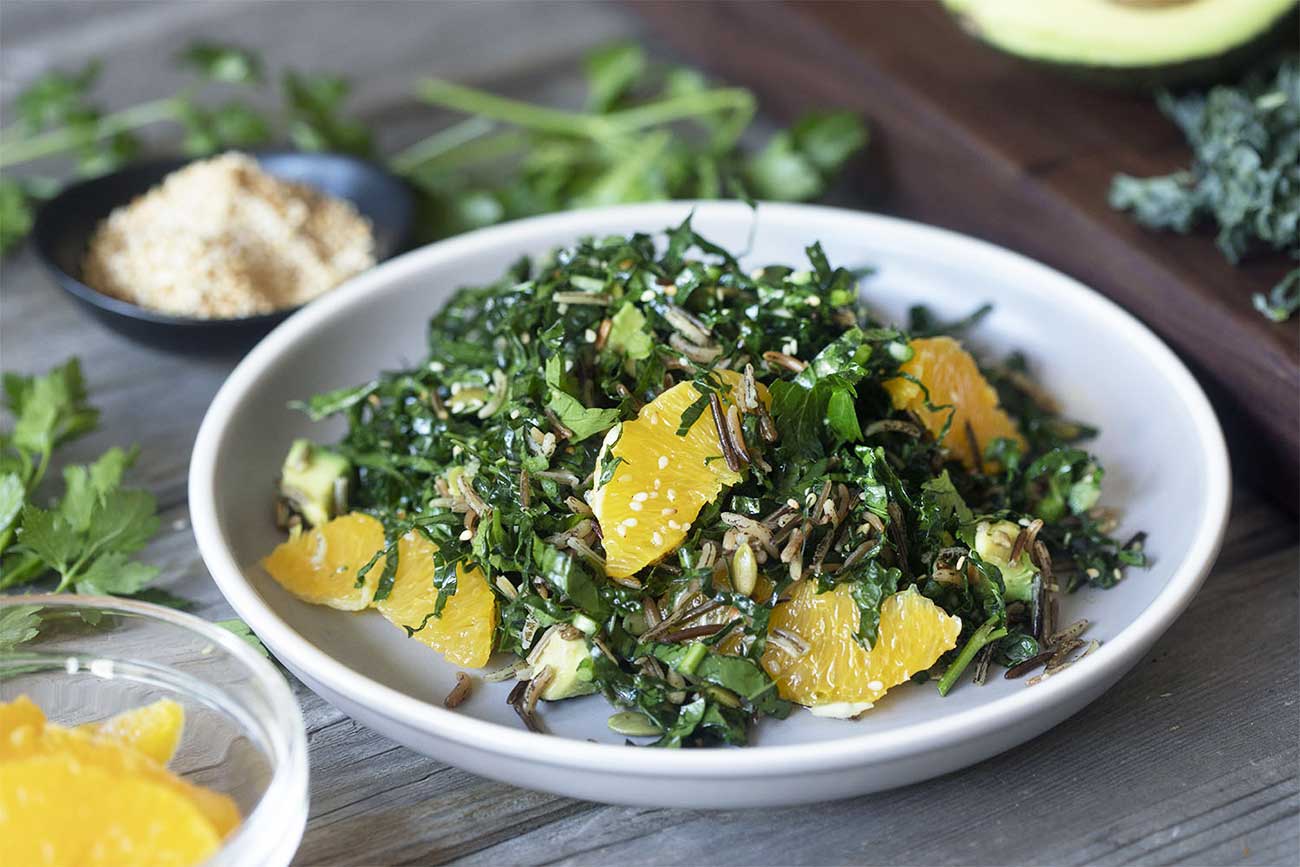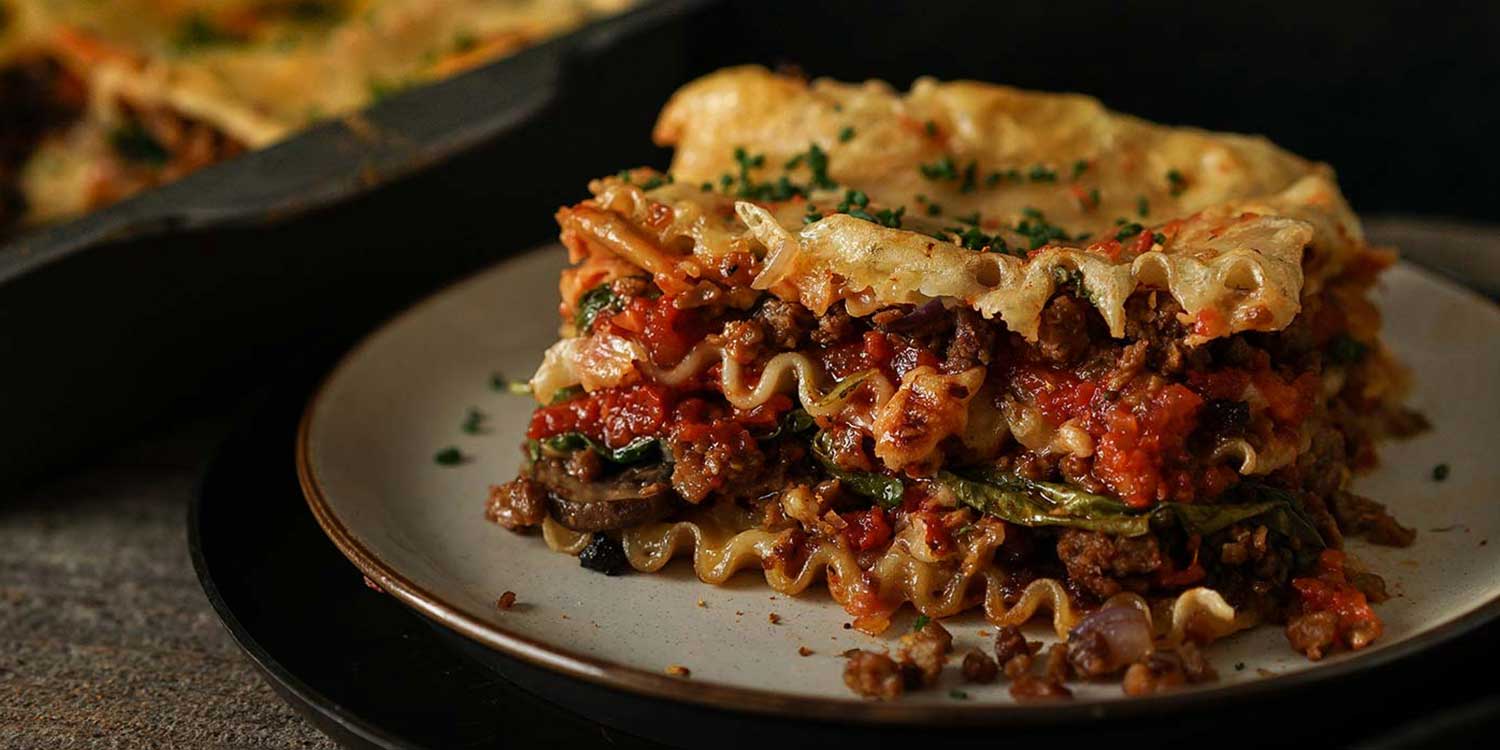

November 17, 2019
While the common misconception is that meat/protein is what fuels exercise, the actual energy for exercise comes mainly from the carbohydrates found in plants. We explore why carbohydrates are the optimal fuel.
As touched on in the film, hard-working muscles run primarily on glycogen, a form of carbohydrate stored in our liver and muscle. Carbohydrates, which come almost exclusively from plants, also provide our brain with its primary and preferred fuel — glucose — which helps us stay sharp and focused during intense training sessions or long days at the office.
 2. Carbs are associated with lower body fat
2. Carbs are associated with lower body fatThis is surprising to many people, who have been conditioned to believe that carbohydrates, as a whole, are the root cause of excess body fat, and that a “low-carb” diet is the key to weight loss. While refined carbohydrates like sugar and white flour — which have been stripped of fiber and other key nutrients — are associated with weight gain, the opposite is true for unrefined carbohydrates like oats, bananas and sweet potatoes — their fiber and key nutrients left intact — which are consistently associated with decreased body fat. This helps explain why people who eat plant-based diets, despite getting more of their calories from carbohydrates than those on animal-based diets, have lower average levels of body fat.
While getting enough calories and protein are key to gaining muscle and strength, carbohydrates also play a crucial role. In fact, research has shown that low-carb diets, including the ketogenic diet, tend to undermine training goals and can slow or even block muscle and strength gains. A recent eight-week weight training trial, where subjects were fed the same amount of total calories and protein, showed that those eating a normal amount of carbohydrates gained 2.9 pounds of lean muscle mass, while those in the low-carb, ketogenic group gained none (1).
And it’s not just extreme carb restriction that can slow progress. A six-month study on rugby players — where calories and fat were matched between two groups — showed that those eating a plant-based diet with ample carbohydrates gained five pounds of muscle, while those eating an animal-based diet with more protein in place of carbohydrates gained only one pound of muscle (2).
Extreme diets that encourage cutting out carbs may help with short-term weight loss, but it comes at the cost of an increased risk of dying early. And even in the short term, performance tends to suffer because, unlike carbohydrates, fat can’t produce energy fast enough to meet the high-intensity demands of exercise. Low-carb diets, including the keto diet, have been shown to cause so much fatigue they even affect our motivation to begin a training session, let alone finish it.
 5. Carbs may be the performance ‘edge’ you’re looking for
5. Carbs may be the performance ‘edge’ you’re looking forCarbohydrates are the ideal source of energy for optimized performance whether it’s doing squats, playing football, or running a marathon. For athletes, even a 0.5-1.5% improvement in performance can make a massive difference in their success, and the compound effect of the plant-based advantage can be very significant, whether you’re an athlete or someone simply looking to stay active and energized.
References:
(1) Vargas S, Romance R, Petro JL, Bonilla DA, Galancho I, Espinar S, Kreider RB, Benítez-Porres J. Efficacy of ketogenic diet on body composition during resistance training in trained men: a randomized controlled trial. J Int Soc Sports Nutr. 2018 Jul;15(1):31.
(2) Toro R, Mangas A, Quezada M, Rodriguez-Rosety M, Fournielles G, Rodriguez-Rosety I, Rodriguez Rosety MA, Alonso JA, Garcia-Cozar FJ, Duran Mdel C. Influencia de la dieta y el ejercicio en el perfil proteómico de una población deportista. Nutr Hosp. 2014 Nov;30(5):1110-7.

Important Nutrients
It’s easy to get all the nutrients we need to thrive eating a plant-based diet. Plant-based diets are typically higher in quality than diets that include meat (1) and include […]
More Details
How Much Protein Do You Need?
Protein is one of the main building blocks of the body, helping us grow and repair tissue, while also helping our hormone and immune systems function properly. Important as it […]
More Details
6 Ways To Get Started on a Plant-Based Diet
When it comes to making food choices, everyone has their own goals and their own rate of change. Some people cut out animal products entirely, while others start by including […]
More Details